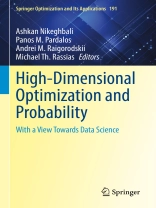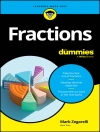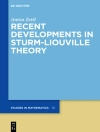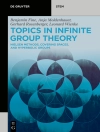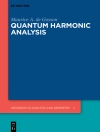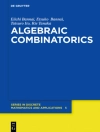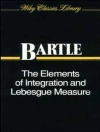This volume presents extensive research devoted to a broad spectrum of mathematics with emphasis on interdisciplinary aspects of Optimization and Probability. Chapters also emphasize applications to Data Science, a timely field with a high impact in our modern society. The discussion presents modern, state-of-the-art, research results and advances in areas including non-convex optimization, decentralized distributed convex optimization, topics on surrogate-based reduced dimension global optimization in process systems engineering, the projection of a point onto a convex set, optimal sampling for learning sparse approximations in high dimensions, the split feasibility problem, higher order embeddings, codifferentials and quasidifferentials of the expectation of nonsmooth random integrands, adjoint circuit chains associated with a random walk, analysis of the trade-off between sample size and precision in truncated ordinary least squares, spatial deep learning, efficient location-based tracking for Io T devices using compressive sensing and machine learning techniques, and nonsmooth mathematical programs with vanishing constraints in Banach spaces.
The book is a valuable source for graduate students as well as researchers working on Optimization, Probability and their various interconnections with a variety of other areas.
Chapter 12 is available open access under a Creative Commons Attribution 4.0 International License via link.springer.com.
Cuprins
Projection of a point onto a convex set via Charged Balls Method (E. Abbasov ).- Towards optimal sampling for learning sparse approximations in high dimensions (Adcock).- Recent Theoretical Advances in Non-Convex Optimization (Gasnikov).- Higher Order Embeddings for the Composition of the Harmonic Projection and Homotopy Operators (Ding).- Codifferentials and Quasidifferentials of the Expectation of Nonsmooth Random Integrands and Two-Stage Stochastic Programming (M.V. Dolgopolik).- On the Expected Extinction Time for the Adjoint Circuit Chains associated with a Random Walk with Jumps in Random Environments (Ganatsiou).- A statistical learning theory approach for the analysis of the trade-off between sample size and precision in truncated ordinary least squares (Raciti).- Recent theoretical advances in decentralized distributed convex optimization (Gasnikov).- On training set selection in spatial deep learning (M.T. Hendrix).- Surrogate-Based Reduced Dimension Global Optimizationin Process Systems Engineering (Xiang Li).- A viscosity iterative method with alternated inertial terms for solving the split feasibility problem (Rassias).- Efficient Location-Based Tracking for Io T Devices Using Compressive Sensing and Machine Learning Techniques (Aboushelbaya).- Nonsmooth Mathematical Programs with Vanishing Constraints in Banach Spaces (Singh).
Despre autor
Ashkan Nikeghbali is currently Chair of the department of quantitative finance at the University of Zürich. His fields of research include finance mathematics, number theory, random matrices, and stochastic processes. Since 2016 Prof. Nikeghbali has been a member of the Scientific Advisory Board of swiss Quant and a member of the Advisory Board of EVMTech.
Panos M. Pardalos serves as distinguished professor of industrial and systems engineering at the University of Florida. Additionally, he is the Paul and Heidi Brown Preeminent Professor of industrial and systems engineering. Professor Pardalos is also an affiliated faculty member of the computer and information science department, the Hellenic Studies Center, and the biomedical engineering program. Additionally, he serves as the director of the Center for Applied Optimization. Professor Pardalos is a world leading expert in global and combinatorial optimization. His recent research interests include network design problems, optimization in telecommunications, ecommerce, data mining, biomedical applications, and massive computing. Panos Pardalos is a prolific author who lectures all over the world. He is the recipient of a multitude of fellowships and awards, the most recent of which is the Humboldt Research Award (2018).
Andrei Raigorodskii is a Federal Professor of Mathematics at the Moscow Institute of Physics and Technology (MIPT) where he is the Director of the Phystech-School of Applied Mathematics and Computer Science, the Head of the Discrete Mathematics Department, the Head of the Laboratory of Advanced Combinatorics and Network Applications, as well as the Head of the Laboratory of Applied Research MIPT-Sberbank. He is also the Head of the Caucasus Mathematical Center. He lectures at MIPT, MSU, HSE and has published about 200 papers and 20 books. He is the Editor-in-Chief of the Moscow Journal of Combinatorics and Number Theory. In 2011, he was awarded the 2011 Russian President’s Prize in Science and Innovation for young scientists.
Michael Th. Rassias is a Research Fellow at the University of Zürich and a visiting researcher at the Institute for Advanced Study, Princeton. While conducting postdoctoral research at the Department of Mathematics of Princeton University in 2014-2015, he prepared with John F. Nash, Jr. the volume ‘Open Problems in Mathematics’, Springer, 2016. He has received several awards in mathematical problem-solving competitions, including a Silver medal at the International Mathematical Olympiad of 2003 in Tokyo. In 2014 he was awarded with the Notara Prize by the Academy of Athens. He has authored and edited several books with Springer. His current research interests lie in mathematical analysis, analytic number theory, and more specifically the Riemann Hypothesis, Goldbach’s conjecture, the distribution of prime numbers, approximation theory, functional equations andanalytic inequalities.
